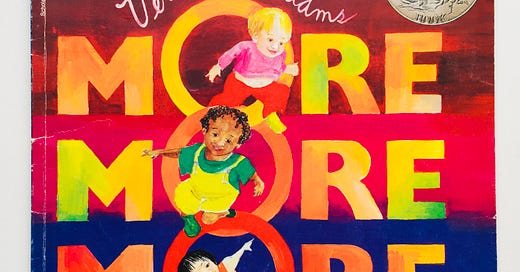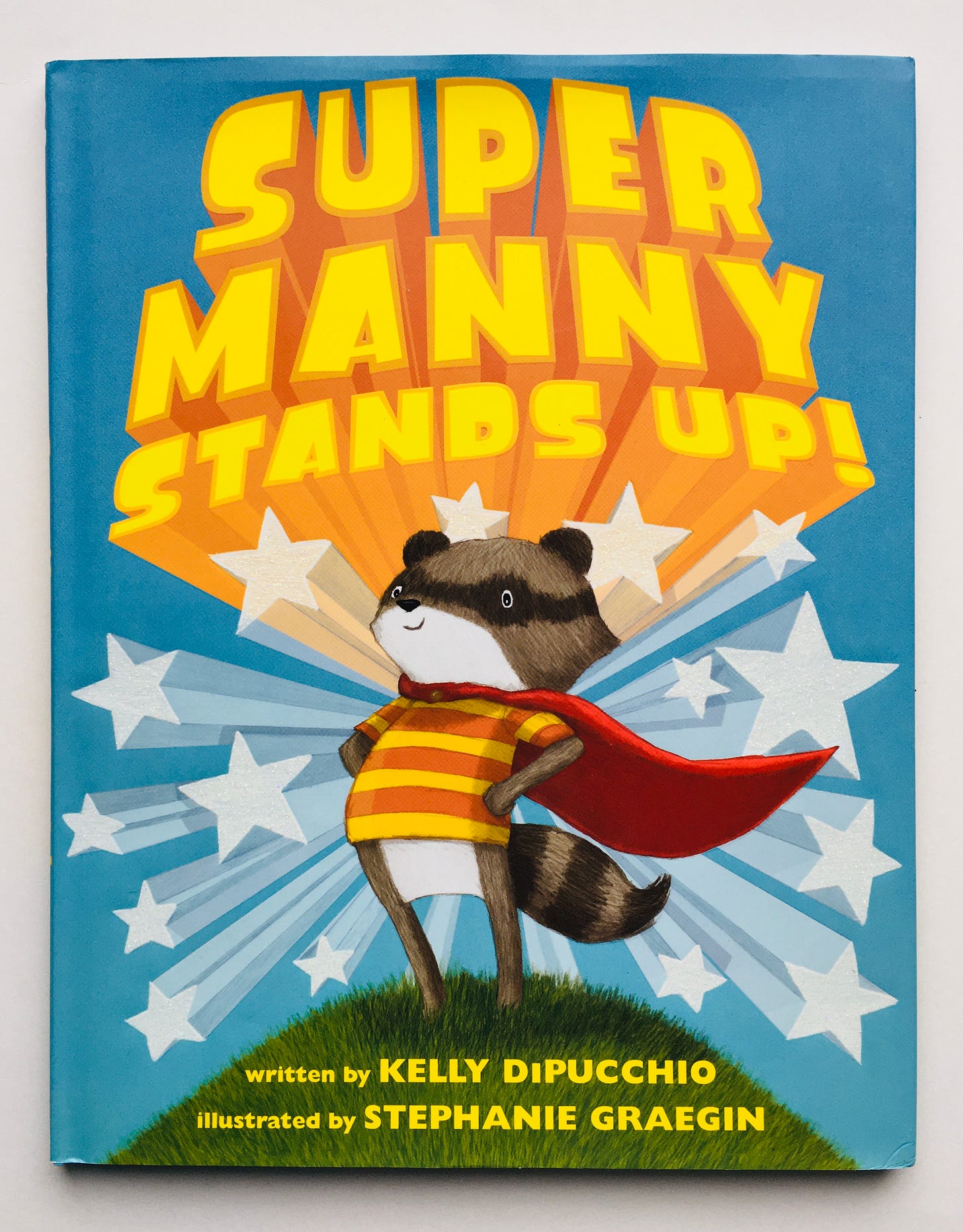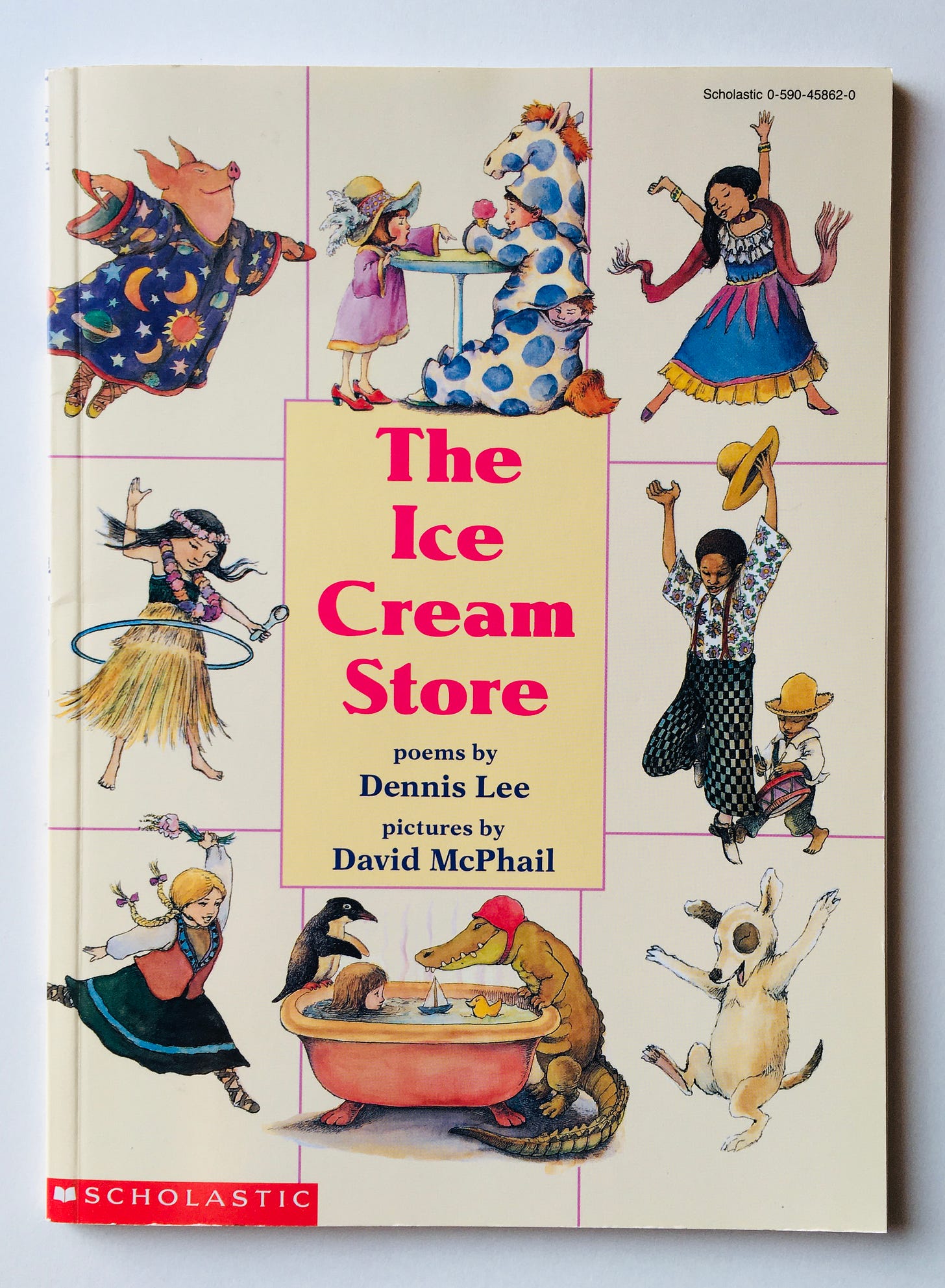Good morning!
A couple of programming notes 📝
1️⃣ In order to create some space for myself, this newsletter is going on hiatus for the next three weeks. Paid subscribers will still receive their monthly issue of (How) Can we read? on the second Friday, February 11, as well as my Spotlight On: Math on February 23, at which time the regular schedule will resume. Free subscribers, I’ll see you on March 2nd!
2️⃣ And: I’m changing how I title my issues. The content will remain the same, but I am trying to make my archives more searchable for those of you looking, and this is one way to do that.
I appreciate your patience and support as I continue to iterate and improve on this newsletter — as always, if you have feedback, let me know! (Hit reply, leave a comment, send a carrier pigeon, etc.)
Unrelated: if you’re looking for some bookish fun in the next few weeks, my fellow Bookstacker (that’s a person who writes a Substack newsletter about books), Elizabeth Held of What to Read If, is launching an inaugural paperback swap — if you want to take part in sending someone a book and then (joy!) receiving one in return, read this post for more details.
Alright, let’s get to it.
More, More, More Said the Baby by Vera Williams (1990)
Winner of the Caldecott Honor in 1991, this book was one of the first to offer what’s a lot more common now: a varied definition of what constitutes a family.
In three short vignettes (those of you with babies and toddlers, this one’s for you!), we meet three different young children, with a story that’s slightly different each time but that shares a common refrain:
Little Guy runs away so fast, and “Little Guy’s daddy has to run like anything just to catch that baby up.” His daddy catches him and kisses him and loves him up, and Little Guy says, “More. More. More.”
Little Pumpkin scoots away so fast, and “Little Pumpkin’s Grandma has to run like anything just to catch that baby up.” Her grandma catches her and swings her around and tastes each one of her toes, and Little Pumpkin says, “More. More. More.”
Little Bird falls asleep so fast, and “Little Bird’s mama has to move like anything just to catch that baby up.” Her mama lifts her and rocks her and kisses each eye, and Little Bird says, “Mmm. Mmm. Mmm.”
Aside from the enjoyable rhythm of Williams’ text — it doesn’t rhyme, but there is a beat to it that feels very much like swaying — is the additional pleasure of her colorful, dreamy gouache. Add to that the incredibly warm depiction of families with different skin tones (I’m not 100% positive, but I am pretty sure this was the first book to depict a white grandmother with a Black grandchild), and it’s obvious why the subtitle of this book is “Three Love Stories.” There is so much joy and affection and flat-out love here, and that’s what makes it a perfect read.
Super Manny Stands Up! by Kelly DiPucchio (2017)
“Every day Manny put[s] on a different cape after school.” Pretending to be a superhero is his thing, and he has a different-colored cape for different types of jobs — his blue one is for saving the world “from an ocean of unsavory sea creatures,” his red one for battling “an angry army of zombie bears,” etc. He never runs out of missions because, as we all well know, there’s a lot going on in the world.
There’s a lot going on at school, too. Though he leaves his fabric capes at home during the day, Manny wears an invisible cape to school and continues facing all kinds of imaginary foes there. One day, he hears a loud voice in the lunchroom and sees “Tall One towering over Small One and laughing.” At first, Manny does nothing, but then he remembers his invisible cape, and… he stands up, literally and metaphorically, in all his superhero glory.
He says, “Stop it.”
Tall One, in the way of bullies eternal, doesn’t like this, but then something powerful happens: the lunchroom erupts with messages of solidarity, as all the other (animal) children chime in, saying, “Stop it!,” “Cut it out,” “Quit it,” etc. The takedown of Tall One isn’t dramatic — he scowls and slinks away and is seen in the background being talked to by a teacher — and the focus shifts immediately to Small One, who joins Manny for lunch and then, later, as his trusty super sidekick.
My kids adore this book and it’s easy to see why — Graegin’s bright pencil, ink, and digital illustrations are a visual manifestation of this bright story, which is about bullying, yes, but more strongly emphasizes self-confidence, courage, and standing up for what’s right. This is an important message for kids as well as for adults, and Manny sets an example of true friendship for us all.
Abuela by Arthur Dorros, illustrated by Elisa Kleven (1997)
This gentle tale of a girl’s adventure with her abuela is based on the premise: “What if [the birds] picked me up, and carried me high above the park? What if I could fly?” Kleven’s signature smorgasbord of mixed media — which is more brilliant here than ever — often depicts scenes of flying, which is one of the reasons this title is so great: Dorros’ warm and intriguing story works so well with Kleven’s illustrations I can’t imagine one without the other.
Likewise, Rosalba and her grandmother — one without the other here wouldn’t make sense. It just feels right to see them together, flying like birds, Abuela’s skirt flapping in the wind, soaring together over vibrant New York City and the sea, visiting the airport and Tio Pablo’s and Tia Elisa’s store, ascending and then resting for a moment in the clouds, faces radiant with mutual joy.
This is an enjoyable, whimsical read full of a special kind of magic: the kind that happens when you let your mind take you away on an adventure, as well as the kind that happens when you have someone who loves you (and is there anyone who loves you like a grandparent?) alongside you.
The Sorcerer's Apprentice by Gerda Muller (2020)
I don’t necessarily think that everything Gerda Muller touches is gold (some people do), but the minute I got my hands on her magnificent wordless board books for babies and toddlers years ago — I reviewed Summer in my 2020 special edition on summer, back when I still wrote concise reviews, ha — I knew she was special.
And that has never been more obvious than her gorgeous, perfect retelling of Goethe’s poem of the same name, “The Sorcerer’s Apprentice.” (Much as I would like to say I am familiar with it because of Goethe, I, like millions of other people, know it best because of Disney’s 1940 movie, Fantasia, which is still as weird as it ever was.)
If you’re unfamiliar with the story, it goes something like this: an orphaned goatherd named Oliver leaves his menial job working for a mean farmer only to hook up with a sorcerer named Alfred who teaches him all kinds of wonderful things — potion-making, magic spells, “the secrets of nature.” One day, Alfred leaves Oliver a list of chores to accomplish while he is away at an important council of sorcerers, and Oliver, like any kid trying to get out of his duties (or anyone drunk on power, for that matter), bewitches some broomsticks to labor for him. This works beautifully… right up until the moment it doesn’t, and the brooms take over, go nuts, and wreck everything, causing a flood that covers the village in mud. Many hours later, after the damage has been done, Alfred returns, and though he tries to cast Oliver out, Oliver begs his forgiveness. The old, wise sorcerer decides to let the apprentice stay, provided he helps the villagers recover from the results of his foolishness (which he does).
Muller has done a truly outstanding job not only retelling this classic story but sharing it to the total capacity of her talent — her gorgeous, detailed watercolors never get old, and my children love looking at every page. It’s on the longer side, so this is not for the tiniest crowd, but anyone 4+ will enjoy this tale full of magic and mischief — don’t miss it.
The Ice Cream Store by Dennis Lee, illustrated by David McPhail (1991)
If you’ve been here for awhile, you know I have Very Strong Opinions about poetry for children (in short: READ IT TO THEM!) It’s not that I don’t understand some of the objections, sort of. But when people tell me, “I just don’t get poetry; my children won’t like poetry,” I have to wonder, what poetry are they reading?
There is tons and tons (that’s a precise amount) of accessible poetry out there for people who think they don’t get or like poetry, but perhaps the most accessible of all is what I think of as the nonsense kind: this sort of poetry is often silly, goofy, even gross, almost always very funny, but is, above all, just a general kind of malarkey that plays with the rhythm and the music of language for the sheer joy of it.
Enter Dennis Lee, who is nothing short of a master of nonsense poetry that will delight and entertain you and your readers. Here he teams up with one of my most beloved (possibly utmost beloved?) illustrators, magician of pen and watercolor, David McPhail, for poems like “The Mouse That Lives on the Moon,” which begins:
The mouse that lives on the moon
Plays the drum with a musical spoon—
With a laugh like a loon
He drums, night and noon,
To a musical, mousical tune.And the cow plays the big bassoon
With her mouth like a macaroon—
The cow on bassoon,
While the mouse plays the spoon
In a musical, mousical,
Moo-sical, mouthical tune.
I MEAN REALLY.
If this super playful, delightful verbal dexterity is not your thing, then okay, sure, skip poetry — I think you’d be making a mistake and the children in your life would be losing out big-time, but it’s UP TO YOU! I’m not upset!
If even this little excerpt brings a smile to your face, though, I highly recommend seeking out The Ice Cream Store.
(And if you like this one, check out Lee’s classic, Alligator Pie, which I reviewed in issue No. 55 and is chock-full of nonsense.)









Thanks for sharing Sarah! And enjoy your break!
Enjoy your break, Sarah!